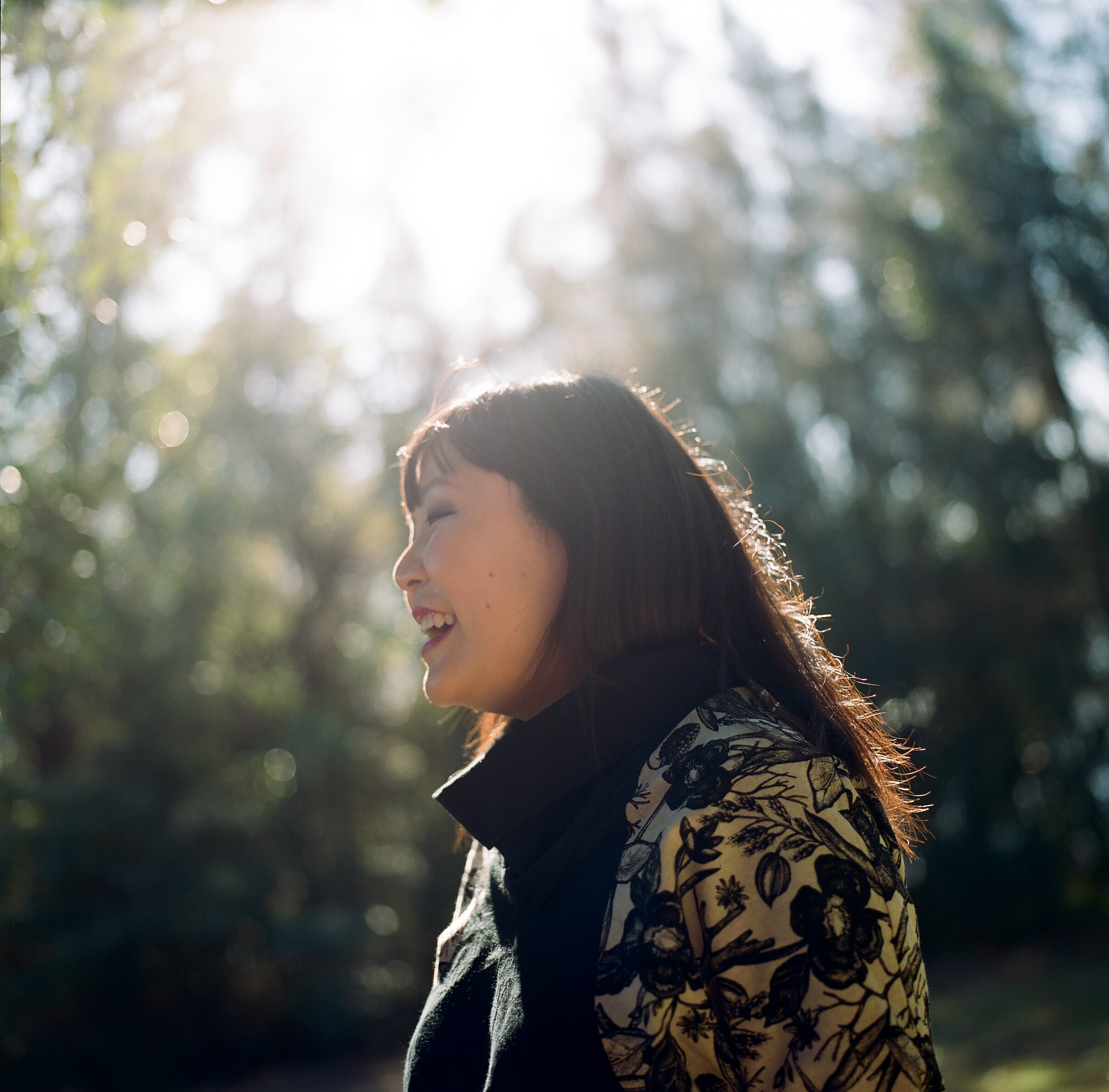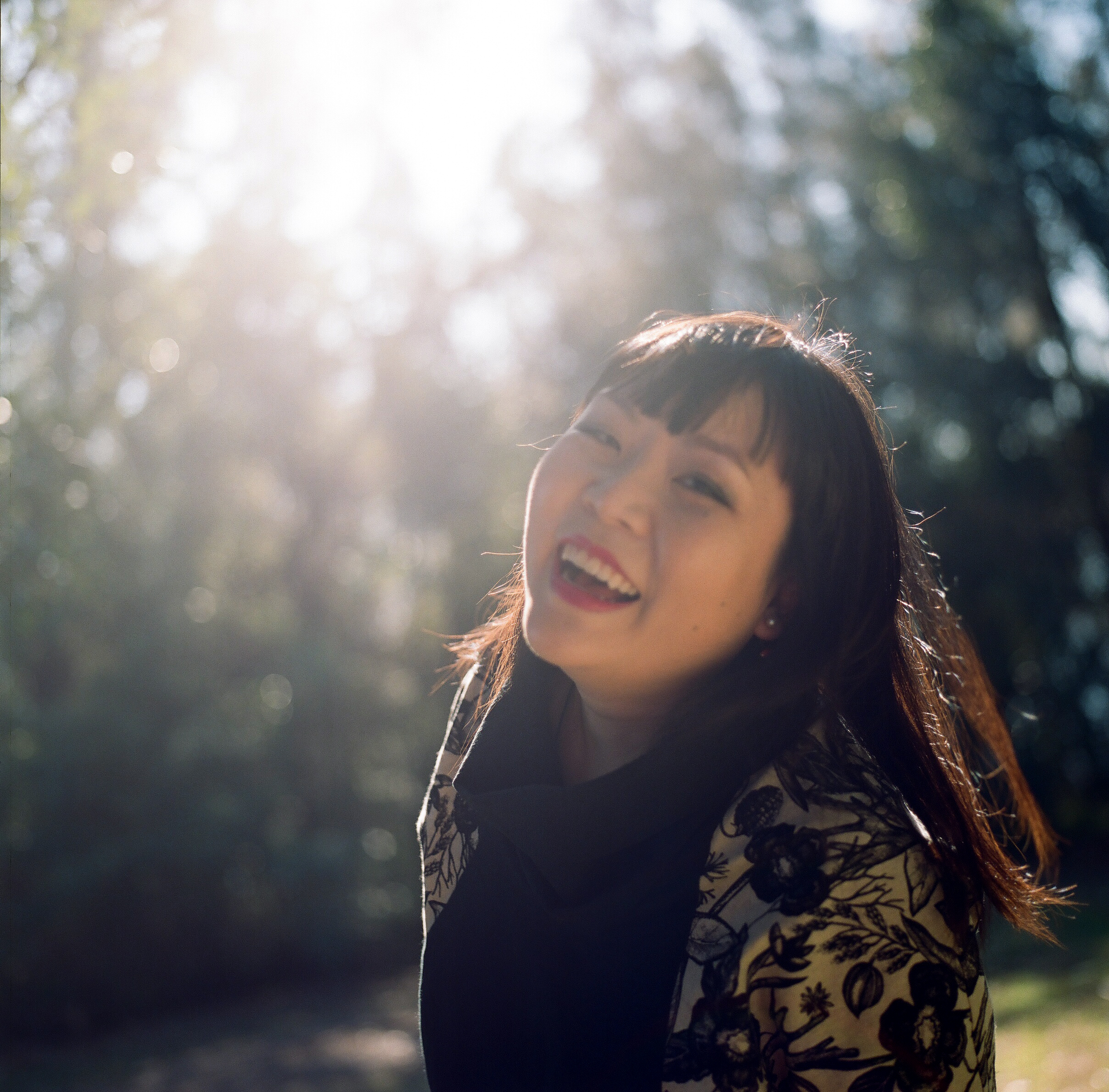Interview #104 — Julie Koh
by Leah Jing McIntosh
Julie Koh is the author of Capital Misfits and Portable Curiosities, and a 2017 Sydney Morning Herald Best Young Australian Novelist.
Her short stories have appeared in the Best Australian Stories in 2014 to 2017, and Best Australian Comedy. She is the editor of BooksActually’s Gold Standard, the librettist for Chop Chef, and a founding member of experimental writing collective Kanganoulipo. She was also a judge for the 2018 Stella Prize. This year, she is a judge for the 2019 Liminal Fiction Prize.
What did you read growing up?
I began by reading all the standard things that a kid growing up in Sydney might have come across in the eighties and nineties—Beatrix Potter, Enid Blyton, Roald Dahl, Morris Gleitzman, Libby Hathorn, Ann M. Martin and so on, and anything I’d order from Scholastic catalogues.
In primary school, I used to make my parents leave me at Dymocks Sydney while they went shopping in the CBD, so I spent many hours browsing books. I loved Sherlock Holmes, and Arthur Ransome’s Swallows and Amazons series. I was obsessed with The Lord of the Rings and used to type out the songs from it like a total loser. I was also obsessed with war and wrote a World War II escape novel that largely plagiarised Eric Williams’ The Wooden Horse.
By high school, I was reading Booker Prize winners like Keri Hulme, Ben Okri, Michael Ondaatje and Arundhati Roy. The high school curriculum introduced me to Aldous Huxley and Joseph Heller, whose work still influences me.
You’ve had quite a trajectory to becoming a writer, quitting your career in corporate law to pursue writing: what drove this decision?
I came to writing in a roundabout fashion. In high school, I actually wanted to be a film director. My parents said I wouldn’t earn any money that way and that I’d have to start with a more financially secure profession. So I nearly took up an accounting cadetship straight out of school, but ultimately enrolled in Arts/Law at uni. I was intending to major in English but decided to switch to politics because I was more interested in stuff like nuclear deterrence.
When I was halfway through uni, my old high school got in contact, telling me a young film producer, Jiao Chen, wanted to adapt a short story I’d written in Year 12 that had been published in an anthology he’d read. We made the film, Colin the Dog’s Fabulous Midnight Adventure and Another Story, 10 years later. That first meeting with Jiao made me start thinking I could give writing a shot. I’d missed the boat on filmmaking but I could still put a sentence together. By my final year of uni, I knew that I wanted to be a writer. I delayed the commencement of my graduate job at a corporate law firm for two years to write a novel that I never finished. I then started my job as an intellectual property lawyer but didn’t want to go further down that path, and I soon quit to pursue writing.
Your writing defies definition; in 2017, it was shortlisted for the Australian Science Fiction Foundation’s 2018 Norma K. Hemming Award (Long Work). As a Literary Studies researcher I would definitely pull it over into the “literature” section! Do you aim to write across genre or is classification the furthest thing from your mind?
I’m glad you think it defies definition. People tend to call it satire, comedy, speculative fiction, weird fiction or literary fiction—but these can all overlap. I didn’t really even know what speculative fiction was when I was writing Portable Curiosities! But I entered the book in the Norma K. Hemming Award because so many people had categorised me as a spec fic author.
I like to think that I’m in the process of inventing a new genre but, conservatively speaking, I’d say I primarily write literary fiction that draws on other genres. I’m happy to use any literary tool available to write a story. So, really, I start with a premise or an idea that intrigues me, and the techniques I use to communicate that are just frills on the mannequin. Sometimes genre is dictated by the commission: I’ve recently written a noir story for John Dale’s anthology Sydney Noir and a letter to Santa for Samuel Johnson’s Dear Santa. But both pieces are recognisably in my style and also stretch what is possible within that genre and form.
When I was halfway through uni, my old high school got in contact, telling me a young film producer, Jiao Chen, wanted to adapt a short story I’d written in Year 12…
Portable Curiosities was shortlisted for a slew of prizes, leading you to be named one of the Sydney Morning Herald’s Best Young Australian Novelists. What was this like? Did you expect this reception? What has surprised you the most about this experience?
The news was a shock, since in the 6 years after I quit law, I’d ended up on 10 shortlists or longlists for residencies and prizes—I was used to not winning. When I was named a Best Young Australian Novelist, it was a year after Portable Curiosities had come out. I was relieved to be able to put something in my bio that would open doors for me after my book had dropped out of the public consciousness. What has surprised me the most is that one of the judges, Michelle de Kretser, has become a friend since and a source of sage advice. That’s something I never envisioned would happen. The award has been a great blessing.
Portable Curiosities was recently made into an audiobook; what was this process like? Did you have any control over the choice of the reader?
It was pretty fantastic. Usually audiobook rights are bought before a book is released but I was an unknown debut writer from a small publishing house, so that didn’t happen. The audiobook offers arrived long after Portable Curiosities was published because the book had done well.
I had a say in who read my work for the audiobook. I heard samples from Bolinda’s regular stable of readers but decided to suggest an external actor, Lauren Hamilton Neill. She’d performed one of my short stories before, and I knew she could do the satire in the book well and would be the best fit for my work. I met up with Lauren prior to the recording and we talked through each story to make sure she had the right interpretation. It’s unusual for a writer to insist on this, and both Lauren and Bolinda were very good about it.
Short films have been made based on your stories. I’m so interested in the experience of having one’s work translated across mediums. Can you speak to your experience?
I had fun seeing Colin the Dog being made and spent a lot of time on set watching the chaotic circus of filmmaking firsthand. I realised that filmmakers can never reproduce a story in exactly the way the writer has imagined it—unless they’re psychic! It was good to let go of the assumption that I’d have control over how the story would look on screen.
Since Portable Curiosities came out, I’ve been talking to production companies about possible adaptations of other short stories of mine. Maybe I’ll get on board as a writer or co-writer. Though it’s difficult to know if any of it will go ahead; my work is strange and, on top of that, it can be very hard to get a film up in this country.
C is for Cockroach, published in the Sydney Review of Books in 2018, is the best writing I’ve read all year. What drew you to write it? (I especially love the long bibliography of Cockroach books.)
Thank you! C is for Cockroach is a faux nature essay in which I talk about my experience as a white, straight, cisgender, middle-class woman of the Anthropocene who goes into the wilds of China to learn how to live as a cockroach.
Sydney Review of Books commissioned the piece as part of a series of essays subverting the conventions of traditional nature writing. I began by reading some existing nature essays and figuring out the conventions I wanted to satirise. I also talked to the author Jane Rawson about the commission and she suggested writing about training a cockroach, taking inspiration from the training of a goshawk in Helen Macdonald’s H is for Hawk. I took it one step further—I wrote about being a cockroach and that naturally gave rise to thoughts on colonialism and cultural appropriation and how writing about other races can often sound like writing about animals. (The great thing about animals is that they can’t talk back.) I also enjoyed getting on board with the current trend involving writers identifying their privilege at the start of a nonfiction piece, then going on to write the most privileged content ever.
The largely fictional bibliography was fun to compile—readers have commented on how much research I must have done to write the essay!
Do you have any advice for emerging writers?
At the start, it’s hard to know what rejections mean. Is your writing shit, or does the editor just not understand your work? Persist and stay true to your vision.
Also, learn to ignore the noise as much as possible—the draining politics of the literary scene, the obligation to be up-to-date with what your contemporaries are writing and the pressure to keep up with Twitter (unless you like it!). In the end, it’s the work itself that matters, and that’s the part I find most satisfying even though it is torturous.
Who inspires you?
People who don’t have time for bullshit.
What are you listening to?
Birds in the springtime outside my window. As a white supremacist, I watch birds and listen to them.
How do you practise self-care?
I’m not great at self-care. I’ve even had to write a list of activities that are guaranteed to chill me out so I can refer to it whenever I’m overworked. Stuff like: have a cup of tea, put some jazz on, go for a walk.
Right now, self-care for me is about taking a break from the literary scene. I was initially worried that if I said no to new opportunities, I’d be forgotten, which I thought would be a shame after spending so long trying to build a profile. But when you’re tired, you’re tired.
Obviously, though, I say yes to Liminal.
What does being Asian-Australian mean to you?
Rarely being seen as a universal protagonist.
At the start, it’s hard to know what rejections mean. Is your writing shit, or does the editor just not understand your work? Persist and stay true to your vision.
Find out more
Interview & Photographs by Leah Jing McIntosh






